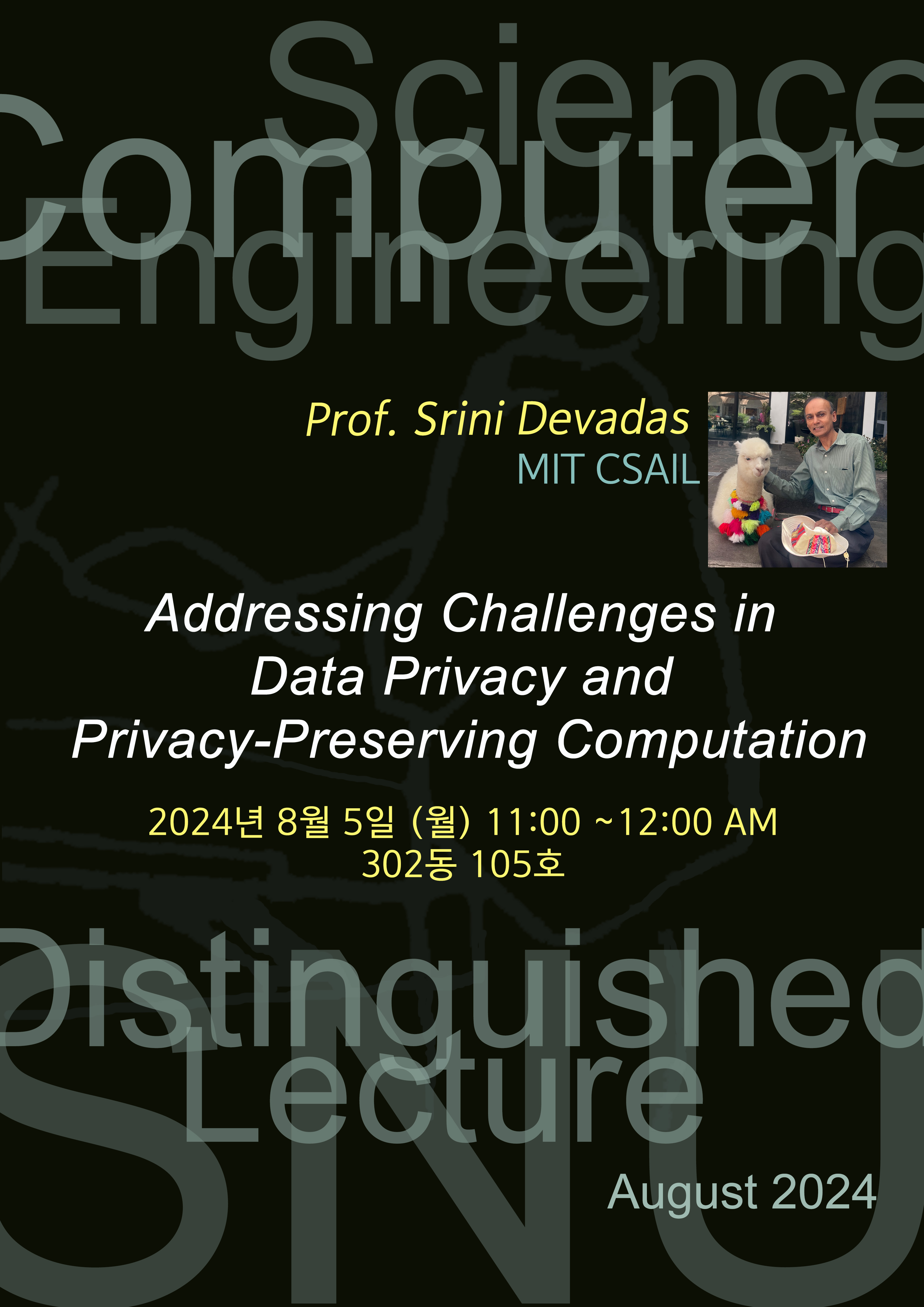[Distinguished Lecture Series] Addressing Challenges in Data Privacy and Privacy-Preserving Computation
직함: Professor


We need to balance the benefits of data-driven innovations with the need to safeguard individual privacy rights, as many services, ranging from e-commerce to healthcare to energy to government, rely on extensive data analysis for their functionality. We want to be able to compute on sensitive data, while exposing results of computations (e.g., aggregates, machine learning models) needed to enable these services. We have proposed a new privacy definition termed Probably Approximately Correct (PAC) Privacy. PAC Privacy allows the development of a fully automatic analysis framework to provably privatize the output of any black-box data processing, ranging from database querying to clustering to machine learning.
Often, organizations wish to give each other access to sensitive data in order to synergistically collaborate, or wish to outsource computational work on their sensitive data to the cloud. This requires privacy-preserving computation: we describe recent work on side-channel-resistant hardware enclaves, and hardware acceleration of cryptography, that accomplish private computation in different ways.
Srini Devadas is the Webster Professor of EECS at the Massachusetts Institute of Technology, where he has been on the faculty since 1988. Devadas's current research interests are in computer architecture, computer security, and applied cryptography. In 2021, he received the IEEE Cybersecurity Award for Practice, and the ACM SIGSAC Award for Outstanding Innovation for his work on secure hardware. Devadas is a MacVicar Faculty Fellow and an Everett Moore Baker teaching award recipient, considered MIT's two highest undergraduate teaching honors.